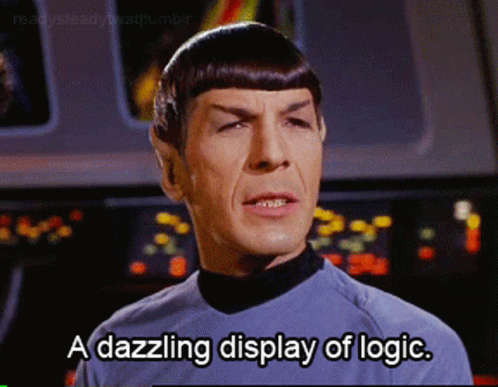How to think systematically
Structured problem-solving is a core skill a product manager should have. Why doesn't systematic thinking come naturally? How can one develop a problem-solving muscle in the shortest time possible?
Hi and welcome to the Corporate Waters weekly newsletter 🙌
I’m Mikhail and I'm excited to share my learnings to help you navigate the complex waters of product management, leadership, and corporate dynamics. Subscribe to unlock the full value.
In today’s paid newsletter:
(Free) My story with consulting and systematic problem solving;
(Free) Why are we bad at being systematic?
(Paid) How can one learn to think systematically? (with real-case examples and tools from my personal arsenal)
In the early 2010s, I joined a club. It mostly consisted of ambitious young mathematicians, aspiring for a cushy career in consulting. Every week, we gathered at a local coffee shop to crunch business cases. Participants split into groups of two. One was leading the case, another was in the interviewee’s seat. Afterward, we'd switch roles.
We flexed our problem-solving muscles with cases like: “A profit of an airline company has dropped by 15%, what should we do?”, “A brick-and-mortar retail company wants to start selling online, should they do it?”, “A tech giant wants to acquire a local startup, what would you advise?”
Despite rigorous prep work, I didn’t make the cut in interviews with the top 3 consulting firms. Around the same time, by a twist of fate, I landed a job in IT. The work turned out to be exciting; I got hooked and had no inclination to look back.
This transition allowed me to draw some parallels between roles and their required competencies. There was one specific skill in which consultants excelled while product managers typically sucked. It was exactly the systematic problem-solving.
With the growing authority and ownership of the PM role, being systematic is more important than ever. The absence of clear logic will inevitably lead to subpar decisions and waste. To put it another way, not having a clear structure of a problem leads to risks.
Most tech companies try to mitigate such risks with candidate assessment during the hiring process. Speaking from my experience as an interviewer, systematic thinking is the top skill I probe every single candidate for.
Poking around this problem, I asked myself whether I could abstract the learnings from my experience and try to answer questions like - What does it mean to be systematic? Why doesn’t it come naturally? How does one build a skill of structured thinking?

Let’s dive in.
🤔 Why are we bad at being systematic?
First of all, being systematic doesn’t come naturally. It requires a deliberate attempt to override our intuitive tendency to rush to conclusions. We’re evolutionarily predisposed to thinking, reacting, and solving problems quickly. Being fast is a matter of survival.
Secondly, our educational systems were never designed to hone systematic thinking. Memorization and testing were and are some of the key teaching methods. Debates and active problem-solving are relatively new trends.
Thirdly, product management itself wasn’t always great for learning problem-solving. Back in the early days, PMs were inseparable from their backlogs and even coined as “backlog operators.” They were mostly concerned with brushing up the backlog, project management, and execution rather than finding new business opportunities.
Even modern-day product teams with more autonomy frequently operate with fuzzy thinking. Their decisions might be sugarcoated as “data-driven” and “customer-informed,” but upon a closer look, they are full of bias and gut-feel assumptions."
The most typical example of someone being un-systematic is when a PM focuses on minor details at the expense of the bigger picture ('losing the forest for the trees'). When such PMs are asked if Uber should accept cash payments in Brazil, they tend to fall for whatever details are top of mind (e.g., let’s talk about how much it will cost our operations to shift gears).
Add more fuzzy thinkers to the mix, and you can have a mess of a meeting where everybody is vocal about particular details, but no one fully owns the bigger picture. That might be a typical grooming session with engineering when the frame isn’t properly set by a PM.
🧠 How can one become systematic?
When I was visiting one of Bain’s workshops, I asked a senior consultant about his experience in building a problem-solving muscle. His answer was straightforward - “Practice solving 200 cases. It’s going to get effortless afterward.”
Nothing beats practice when it comes to problem-solving, but there’s always a risk of doing it the wrong way. How can you avoid biases and develop your systematic thinking to the max in the shortest time possible? Read on, as below I’ll be sharing my personal arsenal. At least a 10x ROI is guaranteed.




